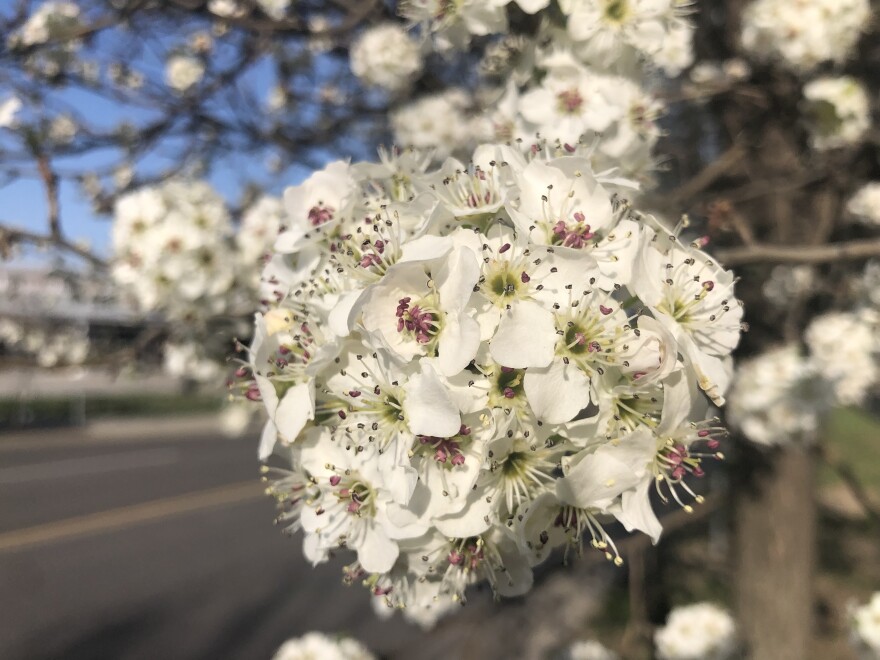Selling, importing or exporting several invasive plants, including Callery or Bradford pear trees, will soon be illegal in Missouri, after the state legislature passed a ban.
Experts say the ban will help slow the spread of the Callery pear, as well as burning bush, Japanese honeysuckle, climbing euonymus, sericea lespedeza and perilla mint — species that often spread uncontrollably and wreak havoc on the environments where they take root.
"It's like setting a buffet full of plastic food for guests that might come over," said Carol Davit, chair of the Missouri Invasive Plant Council. "If your yard is full of plants that no insects can eat, there are fewer insects for songbirds to eat. These plants disrupt the ecological functioning of our communities, and they do nothing to support nature's web of life."
Davit also recommends removing existing Callery pear trees and replacing them with native species.
Serviceberry, wild plum and flowering dogwood trees, for example, feature similar white blooms in the springtime, while black gum and American Hornbeam trees show off vibrant fall foliage.
The ban, which still awaits Gov. Mike Kehoe's signature, is slated to go into full effect Jan. 1, 2029 — to give sellers time to replace their inventory.
- Carol Davit, executive director of Missouri Prairie Foundation and chair of the Missouri Invasive Plant Council







